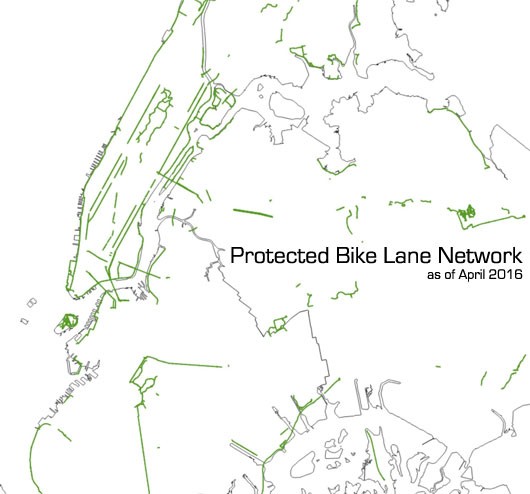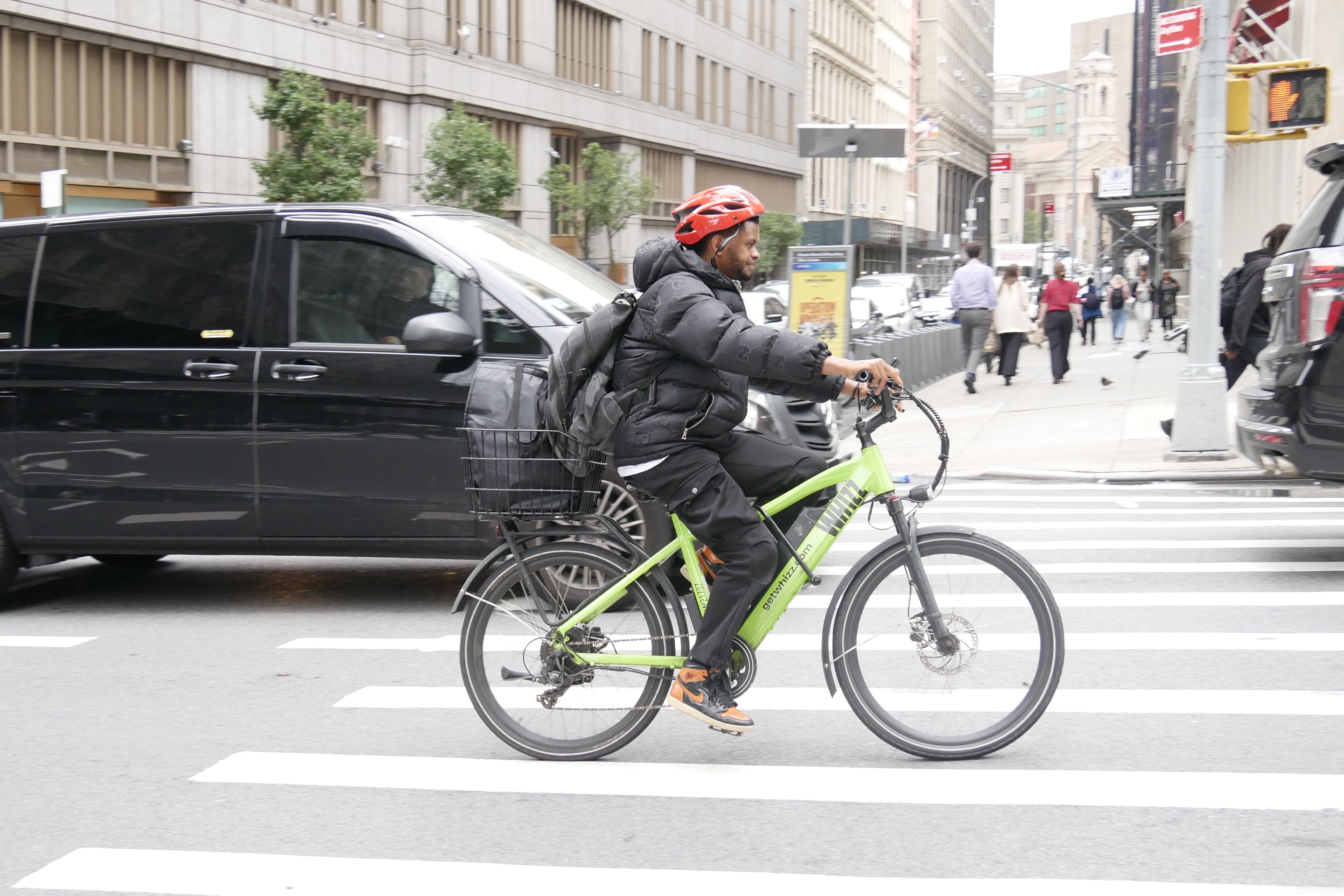
Two days before a mass demonstration and bike ride to demand more action from the de Blasio administration to prevent cyclist deaths, the mayor and DOT Commissioner Polly Trottenberg made a media play that seems designed to deflect pressure, announcing that the city is on track to build a record 18 miles of protected bike lanes this year.
With bicyclist deaths on the rise, the mayor should be redoubling his efforts to redesign streets for safer cycling in order to achieve his goal of zero traffic fatalities by 2024. Instead he's getting defensive.
It's true that DOT's progress in 2016 stacks up well compared to previous years, and the current batch of projects includes important new protected bike lane segments on streets like Queens Boulevard, Amsterdam Avenue, and Chrystie Street.
The fact remains, however, that recent additions to the bike network have not been sufficient to prevent a troubling increase in cyclist deaths this year. For two years running, de Blasio has refused to increase the budget for street redesigns and accelerate the implementation of projects that are proven to save lives. If the mayor chose to make street redesigns a higher priority, DOT could improve safety on many more streets each year.
A press release from City Hall notes that the 61 miles of protected and painted bike lanes to be installed this year will match the total mileage of the last three years of the Bloomberg administration combined. But the political and media climate was much more hostile toward cycling at that time than it is now. And besides, de Blasio's stated goals for street safety are not about outdoing the previous administration -- they're about eliminating traffic deaths.
“They put the bar there, right?" said Transportation Alternatives Executive Director Paul Steely White. "And now they’re comparing themselves to Bloomberg, which is pre-Vision Zero." City Hall's commitment to 10 new miles of protected bike lanes each year is “paltry,” he said.
In March, TA called on the city to increase its investment in "operational" street redesign projects (the type that can be done quickly with low-cost construction) by $52.4 million annually, and to spend $240 million annually on capital projects to redesign the dangerous arterial streets DOT identified in its Pedestrian Safety Action Plans.
The City Council echoed TA's recommendations, but to no avail. The de Blasio administration did not adjust its budget. “We very much feel we have the resources we need,” Trottenberg told the council.
Notably, none of this year’s 17 cyclist fatalities occurred on streets with protected bike lanes. Only two occurred in Manhattan, reflecting the need to expand the reach of the protected bike lane network outside the central city.
In today's announcement, the mayor conceded that there's still more to do. "No cyclist death is acceptable and that’s why we’ll continue raising the bar to keep riders protected," he said. To make good on that promise, he'll have to do more than defend his record -- he'll have to allocate more resources to safe streets.
On Thursday, you can ride with TA to demand more action from the mayor. The demonstration begins at the Fountain of Pomona at 59th Street and Fifth Avenue at 6 p.m., and will set off for Washington Square Park at 6:30.





